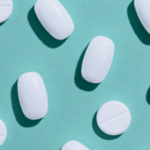Question:
Is low testosterone causing my depression?
Answer:
Depression is caused by a combination of biological and environmental or social factors, not by any one thing on its own. So, a low testosterone level alone can’t cause depression but it might be one of several factors that contribute.
The symptoms of low testosterone are non-specific, meaning they are also symptoms of other things. For example, feeling tired is a symptom of low testosterone but it’s also a symptom of things like diabetes, sleep problems, cardiovascular disease, and depression.
Several symptoms overlap between depression and low testosterone but that doesn’t mean that the conditions are related. When a doctor is working through the diagnosis of depression or low testosterone, they’re looking at the signs and symptoms someone has and doesn’t have, so they can exclude some of the possible causes and narrow it down.
Each of these ways has its own benefits and limitations. The first and second ways mentioned above are the easiest and most common ways used in studies described in the scientific literature (but are also the least reliable): some show higher rates of depression in men with low testosterone compared to men with normal testosterone (or higher rates of low testosterone in men with depression compared to men without depression), and some studies show no differences between groups.
What the research says
A recent study used the third way of trying to answer this question, by looking at relationships between testosterone levels and depression symptoms in a group of middle-aged Americans (who are representative of the population) there was no consistent link between testosterone and depression. In the men in this study, high testosterone was associated with two depression symptoms (tiredness and sleep problems) and low testosterone was associated with one (‘appetite problems’, i.e. poor appetite or overeating).
A recent analysis of all previous studies of depression in men undergoing androgen deprivation therapy for prostate cancer (the fourth way mentioned above), showed higher-than-normal rates of depression. A limitation of this way of answering the question is that men with prostate cancer may not be representative of all men.
The fifth way of addressing the question was used in the TRAVERSE study, of older men with low testosterone levels. Just over half of these men had significant depressive symptoms, which were ‘moderately severe’ or ‘severe’ in one in five men overall. All men in the study who received testosterone had improvements in their mood and energy levels but depressive symptoms did not improve in those with severe or moderately severe depressive symptoms.
The investigators of the TRAVERSE study state that their findings only apply to middle-aged and older men with hypogonadism and don’t cover men using more than normal doses of testosterone. In fact, most of the evidence about testosterone and depression that’s been mentioned is from older men and there’s no good evidence about testosterone and depression in younger men.
The take-home message
Low testosterone does cause symptoms that are shared with depression, and middle-aged and older men with hypogonadism should be evaluated for depressive symptoms but testosterone treatment does not appear to be an effective treatment option for most men with clinical depressive disorders.
In a commentary on the TRAVERSE study, Healthy Male advisers Prof David Handelsman and Prof Gary Wittert point out that “more effective therapeutics are available” than testosterone, including “cost-effective lifestyle interventions”.
If you have symptoms of low testosterone, you should see your doctor because finding the cause of your symptoms is necessary for appropriate treatment. If your testosterone level is low, identifying the underlying problem and treating it will help you feel better. If your testosterone level isn’t low, your doctor can rule that out as the cause of your symptoms and narrow in on the problem, whether it’s depression or something else.















